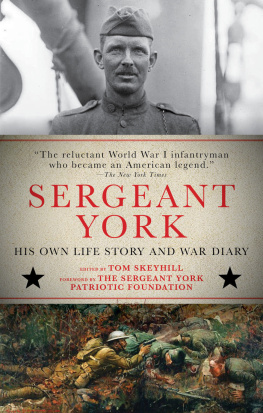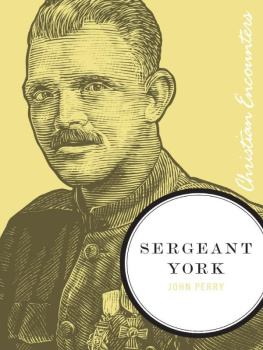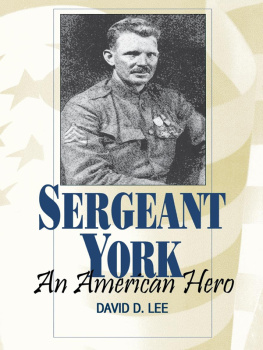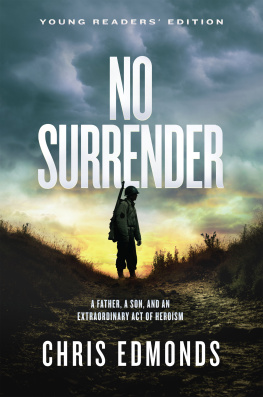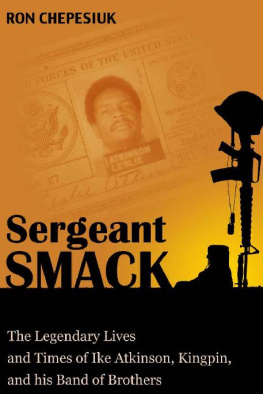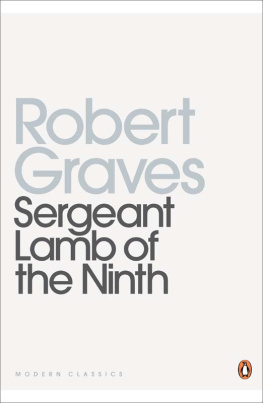


Copyright 1928, 2018 by The Sergeant York Foundation
First Racehorse Publishing Edition 2018.
All rights reserved. No part of this book may be reproduced in any manner without the express written consent of the publisher, except in the case of brief excerpts in critical reviews or articles. All inquiries should be addressed to Racehorse Publishing, 307 West 36th Street, 11th Floor, New York, NY 10018.
Racehorse Publishing books may be purchased in bulk at special discounts for sales promotion, corporate gifts, fund-raising, or educational purposes. Special editions can also be created to specifications. For details, contact the Special Sales Department, Racehorse Publishing, 307 West 36th Street, 11th Floor, New York, NY 10018 or .
Racehorse Publishing is a pending trademark of Skyhorse Publishing, Inc., a Delaware corporation.
Visit our website at www.skyhorsepublishing.com .
10 9 8 7 6 5 4 3 2 1
Library of Congress Cataloging-in-Publication Data is available on file.
Cover design by Michael Short
Print ISBN: 978-1-63158-282-0
Ebook ISBN: 978-1-63158-283-7
Printed in the United States of America
CONTENTS
LIST OF ILLUSTRATIONS
INTRODUCTION
Sergeant Alvin Cullum York, the third oldest of eleven children, was born December 13, 1887 in a one-room log cabin near Pall Mall, Tennessee and departed this life September 2, 1964, known as the greatest soldier of his time and a believer in Christ as his Lord. The story of those seventy-six years, eight months and twenty days is one of the most illustrious narratives of world history. The Old Testament gives no battle account more charged with miraculous victory than the event that occurred October 8, 1918 in the Argonne Forest of France. Nevertheless, in the story of this tall mountaineer there is more to be considered than that one miraculous battle about which so much has been written. A careful look at this man, his family, his community and his faith is an insight into the source of the strength of the American nation these nearly two hundred years of her existence. We shall endeavor in this account to relate the famous historical victory of the Argonne battle and likewise to acknowledge an even greater victory accomplished in the heart of this unusual Christian patriot. He fully believed that there is a purpose in everything and that Mysterious are the ways of the Lord, His wonders to perform.
A TRIBUTE TO MY FATHER
On September 2, 1964, at 10:40 p.m. in Veterans Hospital, Nashville, Tennessee, God called to heaven the most wonderful man I ever knew. He was my father, Sergeant Alvin C. York. As most people know, he was an international figure, known around the world. Yet, he never expressed in any way a feeling of importance, or felt that he had really done anything to bring him world-wide fame and recognition. He would always say, I only did my duty to God and my country, and every man should do this.
When my father returned from France where he had fought for his country and religious freedom, he refused many offers from various industries which could have made him a millionaire. What he had received prior to his enlistment in the Army was not for sale. He had found something at an old-fashioned mourners bench that money could not buy. This experience was real and lasting, and it had kept him through the war. In his own words he said, When God saved me, I quit my drinking, smoking, chewing tobacco, and playing cards. Of course, this happened before he and my mother were married. None of the children ever knew anything from my dad and mother but fine Christian character.
Dad was a man who believed in and established a family altar in our home. Every night before retiring, Dad would get the family Bible and read from its pages the promises of God which gave courage and inspiration to all of us.
The earliest thing I can remember about my father was his teaching the Adult Sunday School Class at York Chapel. This was the Church of Christ in Christian Union at Pall Mall, Tennessee, that he had helped to build. It was in this same chapel in May, 1941 that I was converted and received my calling to the ministry.
I was privileged to attend various kinds of meetings and conventions with my father. At these gatherings he always found a place to insert a statement concerning the importance of the individual and the nation turning to God instead of to men to solve their problems.
All the members of our immediate family are not Christians at this time, but I trust and pray that the influence of Dads life will live on in their mind and thinking. This was his desire.
I do not think of Dad as one who is dead or sleeping, but the bodily form we laid away in the cemetery was only the house he lived in. I think of him having a new body and a new life in the glorious presence of our wonderful Lord. While writing this tribute to my Dad, these are the words that filled my heart:
Dad, it seemed so hard to give you up,
That day you went away,
But just a little while and then,
Well all be home to stay. |
So true to God well try to be,
As you have done before,
And when the mists have rolled away,
Well meet on Heavens shore. |
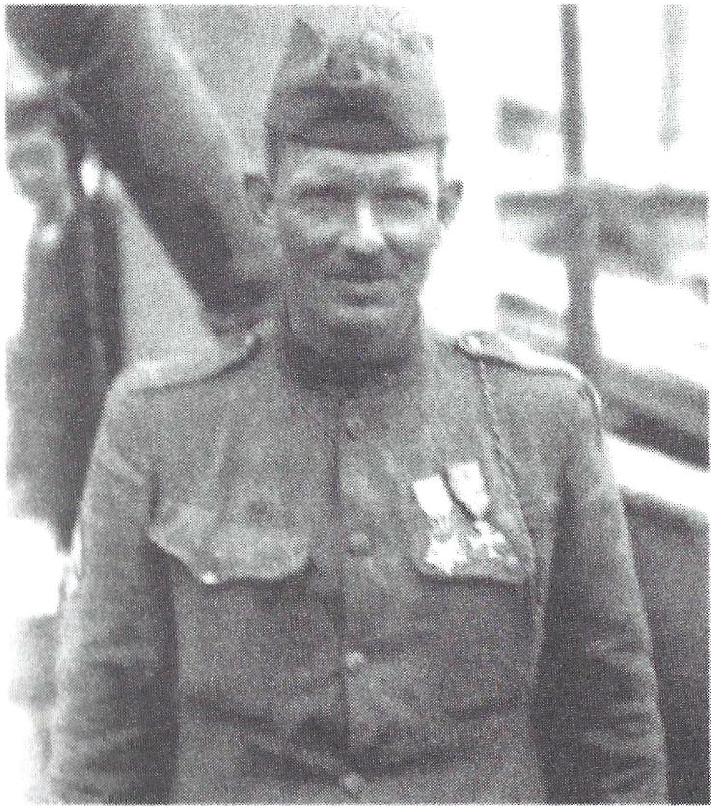
REV GEORGE E. YORK

SERGEANT ALVIN C. YORK
TO
OUR OWN
LEAGUE OF NATIONS
The American-born boys and the Greeks, Irish, Poles, Jews, and Italians who were in my platoon in the World War. A heap of them couldnt speak or write the American language until they larned it in the Army. Over here in the training camps and behind the lines in France a right-smart lot of them boozed, gambled, cussed, and went A. W. O. L. But once they got into it Over There they kept on a-going. They were only tolable shots and burned up a most awful lot of ammunition. But jest the same they always kept on a-going. Most of them died like men, with their rifles and bayonets in their hands and their faces to the enemy. Im a-thinkin they were real heroes. Any way they were my buddies. I jes learned to love them.
SERGEANT ALVIN C. YORK.
FOREWORD
My grandfather, Alvin C. York, was one of ten children born and raised in a rural area of Tennessee. He learned to shoot early in life and always had a rifle or pistol handy. He hunted and shot in matches on Saturdays with his father. Those experiences served him well when he faced an overwhelming enemy force in Frances Argonne Forest on October 8th, 1918.
When the fight was over, he and seven others had captured 132 Germans (128 soldiers and four officers). The other seven had been pinned down behind cover by machine-gun fire from the surrounding high ground and were unable to assist him in the fight. At one point, a German officer and five men charged him with fixed bayonets. He had only a half of a clip left in his rifle, so he pulled his pistola .45 automaticand shot them one by one. He worked his way up until hed shot the last one, who was leading the charge.
Next page
